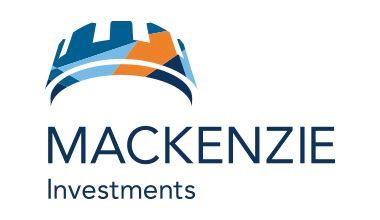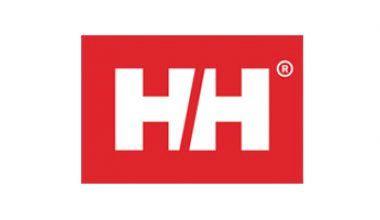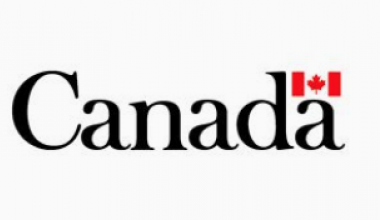Coaching Pathway
Better Ski Racers Through Better Coaches
At Alpine Canada, we’re on a mission to develop the next generation of great coaches. At each development stage, young skiers must acquire and develop their physical and mental abilities, capacities and skills at the right time. The ACA-CSC coach education program links directly with the ACA LTAD stages of growth and skill development.
- Coaching Pathway
- Coach in Training
- Entry Level
- Development Level
- Performance Level
- Ski Cross
- Para-Alpine
- Coach Developer - Facilitator
- Coach Developer - Evaluator
- Master Coach Developers
- Pathway FAQ
Become a great ski coach
Alpine Canada Coach Education (ACA-CSC) in partnership with the territories and provinces develops our Canadian ski coaches by providing coach education, certification and professional development opportunities. Our coach certification program is part of the Coaching Association of Canada’s National Coaching Certification Program (NCCP). As a partner of the Coaching Association of Canada, Canadian ski coaches must meet or exceed minimum competency requirements to be recognized as trained or certified. All ACA-CSC member coaches focus on and uphold the NCCP coaching core competencies of valuing, leading, interacting with people, problem-solving and critical thinking.
The coaching pathway is designed to guide your training and skill development as a coach, providing you with the tools required to support athletes at successively higher levels of performance. To be eligible to coach with any Alpine Canada recognized club, coaches are required to be licensed ACA-CSC registered coach in good standing.
New coaches begin their journey by completing the Entry Level Licensing and Certification requirements. Once those credentials are achieved, they can begin to work with young ski racers at their local club in the gliding start and skier essentials stage of LTAD.
Coaches who are interested in working with Development level ski racers at learning to train and train-to-train stages of the LTAD will seek their Development Level, Licensing and Certification.
When deemed ready to transition into a professional coaching role with competitive train to train, train to race and race to win ski racers, coaches move along the next level of the pathway by obtaining their Performance Level, Licensing and Certification.
The final step of the coaching pathway is the High-Performance coach certification which is reserved for national team coaches working with World Cup and Olympic Winter Games ski racers. The licensing and diploma program is often customized, followed by ongoing professional development and evaluation in partnership with the Own The Podium, the Canadian Olympic and Paralympic Committees, and the Coaching Association of Canada.
Click here to begin your coaching journey today
Coach in Training
The Coach in Training (CIT) program is a licensing program for prospective coaches. There are two (2) registration/licensing programs underneath the "Coach in Training" program.Coach in Training - Supporting an accredited ACA-CSC Coach:
An introduction to alpine ski coaching for athletes transitioning from competitive ski racing, volunteer coaches, and parents interested in assisting an accredited coach with the management of a group at the Gliding Start and Skier Essentials stage of development with their local club. This program is meant to pair up a prospective coach with a mentor coach during the initial stages of learning how to be a coach while supporting young developing ski racers.
Coach in Training - CSIA Level 1 & 2 Certified Instructors:
In the ACA-CSC coach accreditation policy since 2015, clubs can hire CSIA members as a first time new hire if they are coaching athletes under the age of 12 years for the period of 12 months from the date they start coaching.
For clubs seeking to utilize CSIA certified individuals, ACA requires a list of names from the club so ACA-CSC can verify the prospective coach status and certification level with CSIA. Once verified ACA will manually input them into the membership database as a temporary member since they still need to be an ACA-CSC registered licensed coach to work with developing ski racers.
Register to become an ACA-CSC Coach in Training!
ACA-CSC Coach In Training program overview PDF
ACA-CSC Coach Accreditation policy
ENTRY LEVEL COACH - Gliding Start and Skier Essentials
The Entry Level (EL) certification pathway provides new coaches with the tools to efficiently run a training session in the free ski and gate training environments for the Gliding Start or Skier Essentials skier.
Entry-level coaches understand how to plan a daily training session, set up a proper, age-appropriate training environment while considering skier safety at all times. Entry-level coaches are focused on developing fundamental ski technique through the use of the STRIVE program. This certification status will allow a coach to work in a ski club or ski school and coach at an entry-level ski racing program with U6 to U12 skiers.
Entry Level Coach Pathway
Individuals seeking to become ski race coaches at the Skier Essentials development stages start the coach development pathway by enrolling in an Entry-level course. To enroll in an Entry Level course, you must be 15 years of age on the first day of the course. No exceptions.
Coaches start their training by completing all the Entry Level training modules through an approved ACA-CSC course, delivered by your local PTSO.To start working with young skiers, all coaches must be licensed registered coaches in good standing. ACA-CSC Licensing Policy.
Coaches continue their entry-level training and the Entry-Level Coach Portfolio throughout their first year with a local club mentor until they are ready to take their on-snow practical coaching evaluation and become Entry Level Certified coaches. Coaches are required to complete their entry-level portfolio with their local mentor and the NCCP “Make Ethical Decisions” online evaluation prior to undergoing their on-snow practical coaching evaluation.
Next Steps after Entry-Level Certification
Once coaches are Entry Level Trained, they can progress to the Development Level training course if they are working with more advanced athletes in the Learn to Train stage of development. Coaches who are working with para-alpine ski racers are encouraged to complete their para-alpine coach certification by completing both the para-alpine eLearning and on-snow modules. Coaches who are working as head coaches at the Skiers Essentials development level are encouraged to complete the next steps of the Entry Level Advanced Certified pathway to be fully equipped to lead staff coaches and develop skiers at the Skier Essentials level.
DEVELOPMENT LEVEL COACH - Learn to Train and Train to Train
Development level (DL) coaches are working with skiers in the Learn to Train and Train to Train development stages.
Coaches in this pathway understand and use specific drills and exercises to develop fundamental ski technique in the free ski, gate training and competitive environments in preparation for the Train to Race stage.Development level coaches are educated in the course setting principles used in slalom and giant slalom at the U14 and U16 levels. Coaches safely apply fundamental teaching and learning principles during training and competitions to promote the consolidation of a skier's technique and application of tactics in giant slalom and slalom. Development Level certified coaches have the knowledge and expertise to safely guide skiers when learning speed and ski cross terrain management skills.
Development Level coaches complete their Development Level Coach Portfolio prior to undertaking their Development Level Evaluation. Development level coaches focus on developing proficiency in the coaching core competencies prior to evaluation: valuing, leading, interacting with people, problem-solving and critical thinking.
PERFORMANCE LEVEL COACH - Train to Race and Race to Win
Performance Level (PL) coaches are working with ski racers at the Train to Race and Race to Win stages. Ski racers at these stages are following the competitive pathway to compete at the highest level of ski racing.
Performance Level coaches are skilled at performance planning, analyzing performance, environment setting, sequencing of training to promote the consolidation of technique in a variety of tactical situations, and supportive of ski racers during training and competition. Coaches should plan to complete the training and certification process over multiple seasons.
Performance level coaches focus on the coaching core competencies: valuing, leading, interacting with people, problem-solving and critical thinking. The Performance Level Trained coaches utilizes the Performance Level Coach Learning Journal to prepare for evaluation.
Performance level coaches undertake four evaluations to become a certified coach at the competition-development level of coaching including:
- Performance planning evaluation (annual training plan)
- Managing a performance program evaluation (management of the annual training plan and athlete development)
- In training evaluation
- In competition evaluation
To coach ski racers, all coaches must be licensed registered coaches in good standing. Review the licensing policy here.
Ski Cross Coach
Trained ski cross (SX) coaches understand the proper sequencing involved in developing terrain management skills over SX terrain features, setting considerations for SX, inspection skills required in SX, heat racing, rules and regulations related to SX and course safety requirements.
Trained SX coaches are also, at the minimum, Entry Level certified coaches who have completed an online safety and training progression course in addition to attending and completing the ACA-CSC Ski Cross on-snow module.
The Ski Cross trained status is a specialization status much like para-alpine and focuses on developing skiers in the sport of ski cross from the Skier Essentials stage through the Train to Race stages preparing them for the high levels of competition experience at the Race to Win stage.
Para-Alpine Coach
Skiers in para-alpine compete in several different sport classes, depending on the activity limitation that their impairment causes. Standing classes are LW2-LW9: LW2 to LW4 are for skiers with leg impairment; LW5 to LW8 for skiers with arm impairments and LW9 for skiers with a combination of arm and leg impairments. Sit-skiing classes are LW10 to LW 12: All sit-skiers have impairments affecting their legs. Skiers with visual impairment are classified B1 to B3.
Canada has won medals in para-alpine skiing at every Paralympic Winter Games since 1976 including 13 on home soil in Vancouver-Whistler in 2010 and 10 in PyeongChang. Canada’s amazing Para alpine ski team is lead by head coach and architect Jean-Sébastien Labrie, who has masterminded the Para alpine program for Alpine Canada since he took the head coaching helm in 2008.
‘’I never imagined I would have coached this program this long and had so much success,’’ said Labrie, from his Calgary office as he crafted his plans for the 2018-19 season which starts next month. ‘’It was really an opportunity that came by chance. One thing I’ll never forget at the time; I was advised at the time by others in the field this position could hurt my credibility as a coach.’’. Well that certainly hasn’t been the case for Labrie. This past March he was asked by the IPC to chart the downhill course for the Paralympic Games. That’s the one of the highest accolades in the sport and a most obvious indication that you are one of the best in the business. (CPC Coach Spotlight, November 29, 2019).Key statements that a coach should consider prior to entering Para-alpine coaching
- As is the case for any other participant or athlete, sport represents a vehicle for personal achievement, development, health, enjoyment, etc. for para-athletes.
- You are a coach and they are athletes; do not change your coaching philosophy or the way you deal with the athletes or their parents because you are now coaching para-athletes.
- Jean-Sébastien Labrie’s advice is simple for aspiring coaches: never stop learning. ‘’Get informed and educated about coaching and your sport,’’ Labrie said. ‘’You are always learning not only about technique but about the mental aspect and performance factors.” (CPC Coach Spotlight, November 29, 2019).
- Remember, you are not alone! There are many experienced people and groups who can help you, and quality resources that are available.
Coaches interested in coaching para-alpine athletes can follow the ACA-CSC Para-alpine coach certification pathway at the Entry Level (EL) and Development Level (DL). The para-alpine coach pathways include elements of the able-bodied EL and DL pathways and Para specific eLearning modules compatible for both EL Para and DL Para programs.
The Performance Level (PL) coaching context is the final stage, this context has the least modification, as working with Para-athletes in the high-performance setting follows very similar protocols, both on and off-snow.
“At a high level, it’s almost more about all the things in the surroundings that affect the athlete rather than the technique. You need to be open to new technologies and be at the cutting edge of everything that’s affects performance says J.S. Labrie, CPC Coach Spotlight, November 29, 2019.
Coach Developer - Learning Facilitator
Coach developers are coaches who are already involved in the NCCP and have actively coached for many years. Coach developers may have backgrounds in physical education, kinesiology, or similar areas of study. Coach Developers, train and coach the coaches. They are not simply experienced coaches or transmitters of coaching knowledge – they are trained to develop, support, and challenge coaches to go on honing and improving their knowledge and skills to provide positive and effective sport experiences for all participants.
Coach Developers need to be experts in learning, as well as experts in coaching and technical concepts. ACA, PTSO’s and Master Coach Developers are all involved in identifying and training coach developers. ACA sets national standards. Selection of applicants for LF training and designation shall be made in partnership between ACA and PTSO representative responsible for co-ordinating coach education courses.
All coach developer - Learning Facilitators are required to be fully licensed as a registered coach in good standing to facilitate courses. To review licensing requirements review the ACA-CSC licensing policy.
The pathway to become an ACA-CSC and NCCP Approved Coach Developer - Learning Facilitator
Every ACA-CSC course or workshop is led by a trained Learning Facilitator (LF) who has undergone a standardized training process. LFs are crucial to the development of skilled, knowledgeable coaches who are then able to develop safer, happier athletes. The goal of an LF is to effectively facilitate sessions that result in the development of coaches who can demonstrate their abilities and meet the standards established for certification. An LF should have the appropriate knowledge, skills, and attitudes to facilitate workshops using the competency-based approach. In addition, they serve as contributing members of the community and ambassadors for the ACA, PTSOs and the NCCP. For more information on the NCCP Learning Faciliator Pathway click here or If you have additional questions; coach@alpinecanada.org
Selection of Coach Developer - Learning Facilitators
The success of Alpine Canada, it's member PTSO's and their clubs, and the NCCP training depends on the quality of the individuals selected as Learning Facilitators. Selection of applicants to undergo LF training to recieve the LF designation shall be made in consultation with the PTSO representative.
Coach Developer - Learning Facilitators must possess the following traits:
- Good communicators: can speak clearly and communicate professionally
- Good presenters: are comfortable presenting in front of a group, are well spoken, can keep presentations to time limits, and able to adapt to questions and changes
- Good facilitators: can facilitate discussions, actively listen, evoke participation, and move discussions along when need be
- Good organizers: are well prepared, organized, and professional
- Good technical experts: have good knowledgeable of technical/tactical ski racing concepts
- Also learning facilitators are approachable, ethical, responsible, and self-confident
Kaizen - Continuous Improvement
After a coach obtains the LF trained or LF certified accreditation within the ACA Coach Education Coach Developer pathway, Learning Facilitators must conduct at a minimum one (1) course every two years in order to maintain their active status as a coach developer - learning facilitator. Failure to meet ongoing accreditation standards will result in the inactivation of the Learning Facilitator status on the coachs profile. Coach Developers are required to attend a sport specific coach developer update every two years or when there are significant changes to the curriculum or administration processes. More information on the coach developer pathways and standards required for accreditation review the ACA Coach Education Coach Developer Policy.
Coach Developer - Coach Evaluator
Coach developers are coaches who are already involved in the NCCP and have actively coached for many years. Coach developers may have backgrounds in physical education, kinesiology, or similar areas of study. Coach Developers, train and coach the coaches. They are not simply experienced coaches or transmitters of coaching knowledge – they are trained to develop, support, and challenge coaches to go on honing and improving their knowledge and skills to provide positive and effective sport experiences for all participants.
Coach Developers need to be experts in learning, as well as experts in coaching and technical concepts. ACA, PTSO’s and Master Coach Developers are all involved in identifying and training coach developers. ACA sets national standards. Selection of applicants for Coach Evaluator training and designation shall be made in partnership between ACA and PTSO representative responsible for co-ordinating coach education courses.
All coach developer - Coach Evaluators are required to be fully licensed as a registered coach in good standing to evaluate and certify coaches. To review licensing requirements review the ACA-CSC licensing policy.
The pathway to become an ACA-CSC and NCCP Approved Coach Developer - Coach Evaluator
A Coach Evaluator’s (CE) role is to contribute to the development of coaches after they have acquired their NCCP training. This includes assessment, evaluation, debriefing, and follow-up with coaches trying to achieve Certified status. CEs are experts in the observation process and have in-depth knowledge of the outcomes, criteria, and evidences that comprise the evaluation tools that establish NCCP standards for coaches of a sport context. CEs act as ambassadors for Alpine and the NCCP and as a resource to coaches seeking to augment and validate their coaching abilities.
A Coach Evaluator’s role is to contribute to the development of coaches after they have acquired their NCCP training. This includes assessment, evaluation, debriefing, and follow-up with coaches trying to achieve Certified status. Coach Evaluators are experts in the observation process and have in-depth knowledge of the outcomes, criteria, and evidence that comprise the evaluation tools that establish NCCP standards for coaches of a sport context. Coach Evaluators act as a resource to coaches seeking to augment and validate their coaching abilities.For more information on the NCCP Coach Evaluator Pathway click here or If you have additional questions; coach@alpinecanada.org
Selection of Coach Developer - Coach Evaluators
The success of any evaluation program rests to a large degree on the quality of the individuals selected as Coach Evaluators. It is critical that quality control be exerted when appointing someone as a Coach Evaluator, as not everyone possesses the experience, skills, or attitudes to be effective in this position. Applicants for Coach Evaluator training and designation will be selected in consultation between ACA and the appropriate PTSO. Coach Evaluators are also highly encouraged to complete the NCCP Mentorship training module. Coach Evaluators must possess the following:
- A thorough understanding of the ACA evaluator guidelines document in the relevant context
- Completed all context relevant training as an evaluator as described in the NCCP pathway
- A minimum of 3 years of coaching experience in the context in which evaluation takes place;
- Successfully completed the NCCP Make Ethical Decisions on line evaluation requirements;
- Credibility with their peers;
- High ethical standards and leadership skills;
- A desire to see the coach certification system as well as the sport grow;
- Time and energy to commit to the evaluation process;
- Proven guiding and facilitation skills;
- The ability to be critically reflective and ask questions
- The ability to listen actively to the candidate.
- In good standing with ACA Coach Education
Kaizen - Continuous Improvement
After a coach obtains the CE trained or CE certified accreditation within the ACA Coach Education Coach Developer pathway, Coach Evaluators must conduct at a minimum three (3) evaluations every five (5) years in order to maintain their active status as a coach developer - coach evaluator. Failure to meet ongoing accreditation standards will result in the inactivation of the coach evaluator status on the coachs profile. Coach Developers are required to attend a sport specific coach developer update every two years or when there are significant changes to the curriculum or administration processes related to the certification process in the ACA Coach Development Pathways. More information on the coach developer pathways and standards required for accreditation review the ACA Coach Education Coach Developer Policy.
Master Coach Developers
Coach developers are coaches who are already involved in the NCCP and have actively coached for many years. Coach developers may have backgrounds in physical education, kinesiology, or similar areas of study. Coach Developers, train and coach the coaches. They are not simply experienced coaches or transmitters of coaching knowledge – they are trained to develop, support, and challenge coaches to go on honing and improving their knowledge and skills to provide positive and effective sport experiences for all participants.
Coach Developers need to be experts in learning, as well as experts in coaching and technical concepts. ACA, PTSO’s and Master Coach Developers are all involved in identifying and training coach developers.
The role of the Master Coach Developers (MCD) is to train, to evaluate, to support, and to mentor Coach Developers, i.e. Learning Facilitators (LFs), Coach Evaluators (CEs), and other MCDs. In addition, MCDs play a key role in promoting the NCCP. Master Coach Developers must possess adequate knowledge and expertise in facilitation to assist in training Coach Developers and to lead workshops and professional development experiences for Coach Developers.
It is expected that Master Coach Developers will have more responsibility in a supportive role with Coach Developers during workshops, evaluations, and in Coach Developer development. MCDs should be willing and able to lend support to Coach Developers, program administrators, and delivery host agencies.
All Master Coach Developers are required to be fully licensed as a registered coach in good standing to evaluate and certify coach developers. To review licensing requirements review the ACA-CSC licensing policy.
The pathway to become an ACA-CSC and NCCP Approved Master Coach Developer
A Master Coach Developer is a coach who has completed the learning facilitator pathway and the coach evaluator pathway within their coaching context of expertise. A Master Coach Developer is the coach of the coach developement workforce, learning facilitators and evaluators, in their local province or territory who can support both coach developer roles as described below.
-
The goal of an LF is to effectively facilitate sessions that result in the development of coaches who can demonstrate their abilities and meet the standards established for certification. An LF should have the appropriate knowledge, skills, and attitudes to facilitate workshops using the competency-based approach. In addition, they serve as contributing members of the community and ambassadors for the ACA, PTSOs and the NCCP.
- A Coach Evaluator’s role is to contribute to the development of coaches after they have acquired their NCCP training. This includes assessment, evaluation, debriefing, and follow-up with coaches trying to achieve Certified status. Coach Evaluators are experts in the observation process and have in-depth knowledge of the outcomes, criteria, and evidence that comprise the evaluation tools that establish NCCP standards for coaches of a sport context. Coach Evaluators act as a resource to coaches seeking to augment and validate their coaching abilities.
For more information on the NCCP Master Coach Developer Pathway click here or If you have additional questions; coach@alpinecanada.org
Selection of ACA Education Master Coach Developers
Application to become an MCD is to be made directly to ACA Education by emailing coach@alpinecanada.org. Applicants will be selected in consultation with the appropriate PTSO Coach Education lead and PTSO athletic director.
Master Coach Developers must possess the following:
- Have five (5) years of experience or more as an LF;
- Have successfully completed the NCCP Make Ethical Decisions online evaluation;
- Are trained or educated in an area related to coaching or coach education;
- Have relevant coaching experience in alpine ski racing;
- Expert technical and tactical knowledge of ski racing
- Knowledge and understanding in the NCCP coach developer pathway;
- Contextual understanding and knowledge in athlete skill development and growth and development, including content included in the ACA LTAD 3.0;
- Experienced in training and instructional methods in an adult education environment
- Successful completion of the NCCP Making Ethical Decisions on line evaluation
- Successful completion of the MCD training sessions
- Demonstrable skill in the NCCP core competencies: leading, valuing, interacting, problem solving, critical thinking
- Must be have completed all NCCP requirements in the Coach Developer pathway
Kaizen - Continuous Improvement
Upon gaining either trained or certified status within the Coach Education, Coach Developer pathway, LF’s, CE’s and MCD’s MUST conduct, at minimum, one (1) course every two (2) years in order to maintain their active status. Failure to meet ongoing accreditation standards will result in the removal of LF. CE or MCD status from the coach profile. All Master Coach Developer’s must attend a yearly update and contribute actively to annual curriculum reviews and updates to maintain their Master Coach Developer status.
More information on the coach developer pathways and standards required for accreditation review the ACA Coach Education Coach Developer Policy.
Pathway FAQ
HOW ARE SKI INSTRUCTORS DIFFERENT THAN SKI COACHES?
Ski Instructors- CSIA
Resorts and hills across Canada operate snow-schools, where learners get their initial on-snow lessons and experience. These lessons are led by Instructors.Instructors work with gliding start and skier essentials skiers, who are learning fundamental movements and how to ski. In order to become a qualified instructor, candidates complete the Level 1 Course through the Canadian Ski Instructors Alliace (CSIA). If delivering snow-school lessons at your local resort sounds like the right fit for you, visit www.snowpro.com to get started.
Ski Coaches
Ski Clubs, Provincial / Territorial Teams and our National Team rely on the expertise of Coaches to help ski racers learn new skills, compete at the highest level, and reach their athletic potential.
Coaches work with skiers and ski racer to develop specific competitive ski racing skills, while training for success in competitive ski racing disciplines, and developing the experience and confidence needed to win at progressively higher levels. To become a trained and licensed coach, you will begin by taking an introductory coaching course. This course is delivered in partnership between ACA-CSC, provinces and territories, and the National Coaching Certification Program. The course is then followed by a short checklist of follow up action items to complete and meet the minimum NCCP standards. .
If mentoring and developing ski racers sounds like the right fit for you, then you’ve come to the right place.
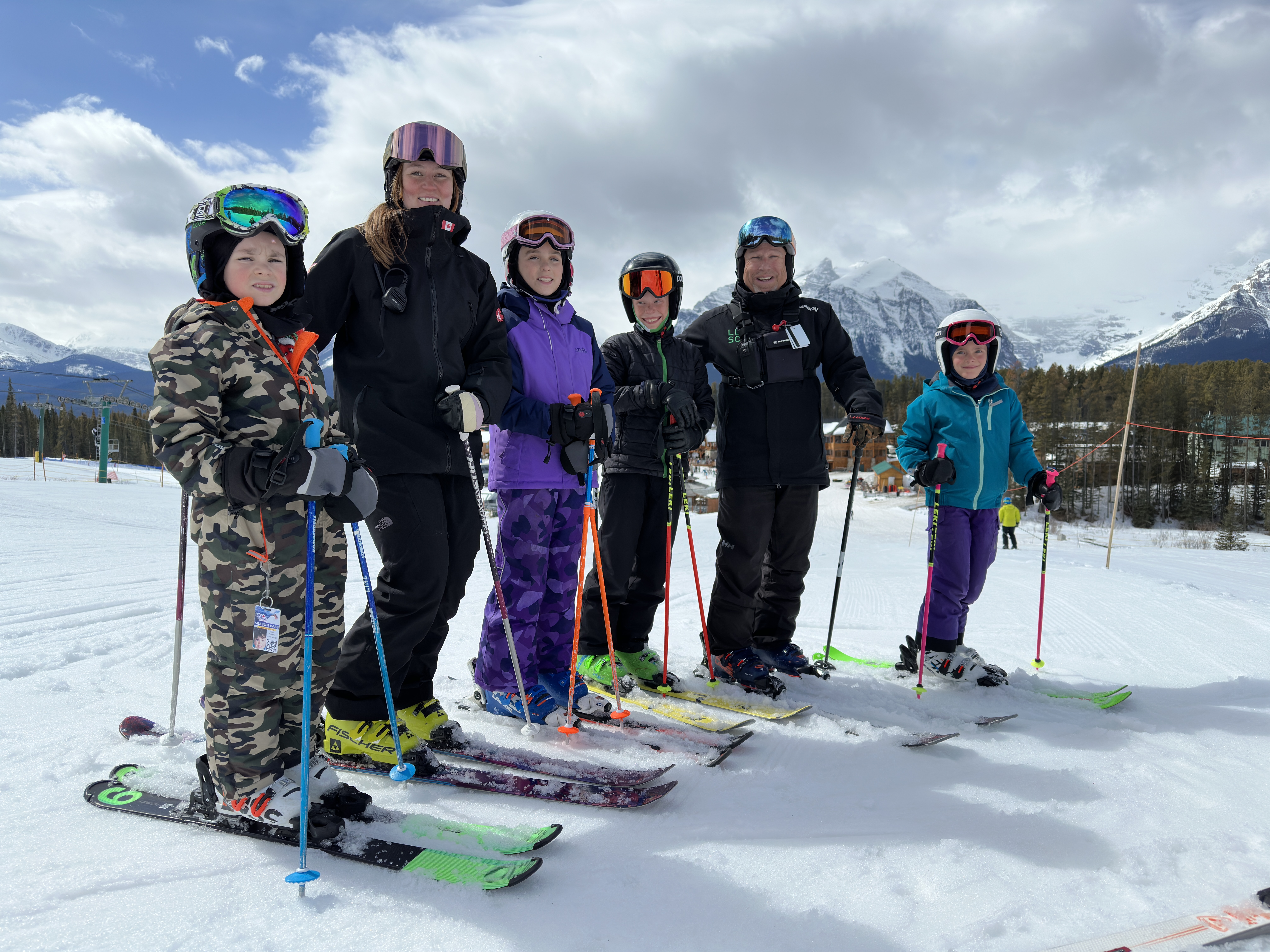
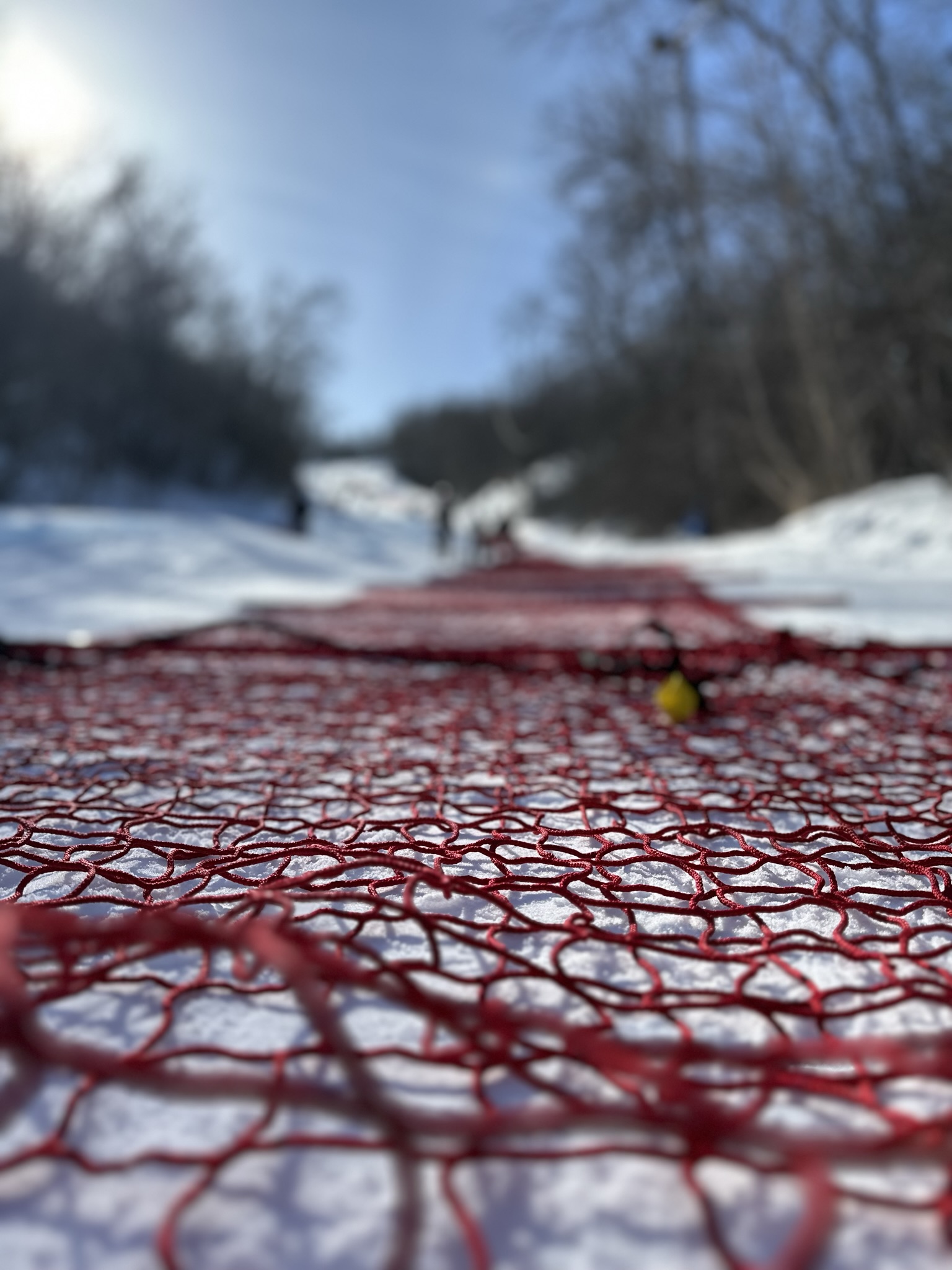
.jpg)
